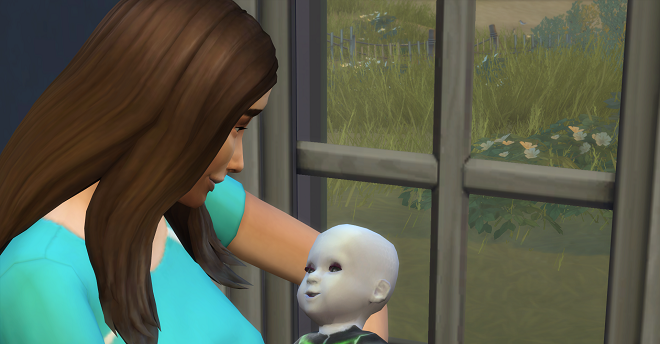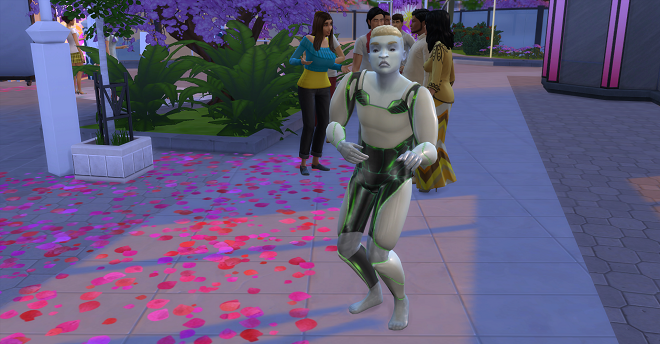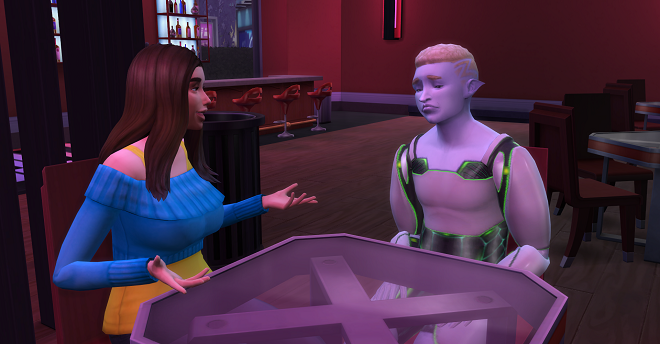
During Naavre’s first eighteen months, I returned to my novel. I’d set it aside, without even intending, after Sept and I got together. Caught up in the romance of our first year together, the intensity of the rebel movement, the significance of our work with the refugees, the rewards of caring for Santi and helping Seb, on top of the physical and emotional demands of pregnancy, I’d all but forgotten it.
Xirra and Teko, who’d heard about the draft from Sept, asked after it often, encouraging me to resume writing. But it was Morning Joe who helped me see that, maybe, I had something to say and this novel was the vehicle for saying it. The ideas I wanted to write about weren’t just ideas to Morning Joe: they were core to his experience of life.

While Santi spent the days at Seb’s school, and Naavre slept, and Sept washed load after load of laundry, or cooked our meals, or cleaned house, I sat at the computer, letting the moments of quiet weave through the household sounds of running water, a sweeping broom, the click of Mojo’s nails across the wooden floor, and the quiet thrum of the washing machine, and in that brook of silence, I found my words.
I realize now that I was writing for Naavre, too. Or rather, I was writing to bring into focus for me resilience. I knew our baby had been born on a planet with challenges we’d never faced before, and I wanted to excavate the layers of my words to discover what hid buried in the gneiss of spirit and intelligence. Could I uncover something to give me strength for raising a child in a crumbling epoch?

During this time, Morning Joe became a regular part of our daily life, visiting often.
“He trusts you,” Sept said.
I deflected. “He likes all of us.”
“No, you hold a special place,” Sept said. “He met you first, and he trusts you in a way he doesn’t trust others. I can see it in his face.”
Before I returned to working on the novel, when I felt the need to take a break or get out for a bit, I’d often accompany Morning Joe to the garden center, the co-op, the farmer’s market. Once he asked me to go with him to the Romance Festival in the city. Would I be his “wingman?” I laughed. Where had he heard that term? From Luna Kari, no doubt, Mistress of Idioms.
He seemed unnerved by the crowd, even though most of the people we talked to were our friends.

While I caught up with Masami, he stood off to the side. He began to whistle and click, a distress call in his home language.

“Morning Joe?” I asked. “You OK?” I stood beside him. He stopped the whistle-clicks and steadied his breath.
He looked at me and smiled. “OK,” he said.
“You know Masami, right, Morning Joe? She’s a friend of ours and a friend of Ritu’s.”

“Yes. Peace Garden friend.” He’d been working at Ritu’s Peace Garden for the past year and he and Masami’s shifts often coincided. “Masami, hi!”
“Good evening, Morning Joe!” she laughed.
“Evening morning,” he chuckled.

They began talking of the kale seedlings that had sprouted yesterday.
“Cute baby greens!” Morning Joe gushed. “Juicy-sweet! Very proud, little green!”

“Ready for the festival?” I asked Morning Joe, when he finally ran out of praise for the seedlings and Masami wandered towards the displays of roses and hellebores.

He glanced at the people sipping tea, ordering from food stalls, throwing rose petals, and shook his head.
“Here,” he said, nodding to the lounge across the street. I followed him in.
The place was empty, with everyone at the festival. He walked up to the stage and selected a song. I seem to recall it was Neil Sedaka’s “Laughter in the Rain.”
He sang over the orchestration, but he didn’t sing the words or even the melody. He sounded like mockingbirds and crickets.

“That was beautiful,” I said when he finished and joined me at the table.

“From home,” he said. “When very young. Like Santi. Before. Before they come for me.”
“Your home must have sounded magical, if that’s what the singing is like.”
“That song. It is the song the papa sing to the mama. When they want to grow family. I feel that song. I feel to sing it. I sing it. From here.” He touched his chest. “But no one come to reply. My no grow family here.”

“I am sorry, Morning Joe,” I said. “I wish someone had answered your song. Maybe some day.”

“No,” he replied. “I am only one. No one here for family growing.”
I knew little about his home planet then, only the brief bits that Luna Kari had told me. What I know about Pu!’Re I learned later, mostly from Teko and Xirra, for Morning Joe didn’t like to talk about his personal and planetary history.

He came from the ancient peace-loving hunter-gatherer culture of Pu!’Re, a planet illuminated by eleven moons back in the distant regions of the Kfvico’kyastorr empire. When Pu!’Re was colonized, the Kfvico’kyastorr (or Cookie Store, as we call them), identified the people as the planet’s primary natural resource. Every eighth year, the Cookie Store harvested the crop–20-50% of the children, who were stolen from their families to provide slave labor. Morning Joe was one of these, kidnapped to work in the gardens of the elite.
When I asked about his home that day, or what families were like where he came from, I hadn’t realize the pain this would stir.
“All nature to me–all that natural, all is nothing,” he said.
If I had known more then, I wouldn’t have asked. I would have waited and listened, which is what I did once I understood how deeply he was hurting.
“If I go home–I cannot go home. If I go home, it is no more. It is for my mother, my father. It is not for me. I been taken. I here. This where I stay. This home. I cannot grow family here. It is me. It is Luna Kari. It is OK. It is not OK.”

He said he felt peace when he worked in the garden. He even felt happy. He felt happy when he was with our family. He explained that he could even accept that he could never fulfill his longing to “grow” a family of his own by settling into his love for this planet.
But then he said, “The wind is sick. And new home is to lose, additionally.”

The wind is sick? I asked if he meant the jet stream and the collapsing polar vortex. He nodded.
“In garden, I feel this. The kale. They grow today. Tomorrow? No rain. Or too much rain. Tomorrow, no kale.”

I explained that it wasn’t the first climate change that this planet had seen. Perhaps it’s the most tragic, for being preventable.
“It could have been avoided,” I said. “Enough people knew, before the tipping point. And that makes the tragedy of it such that it can’t even be compared to the previous ones, even with their mass extinctions.”
“What lost?” he asked. “In previous?”
I listed what I could remember: the graptolites of the end of the Ordovician, the trilobites from the Devonian, the tabulite corals of the Permian, the jawless eels of the Triassic, the ammonites of the Cretaceous.
“What lasts?” He asked. “What not lost?”
I told him about cyanobacteria, ocean dwellers believed to have existed since shortly after the creation of the planet. “They survived all the mass extinctions,” I told him. I shared my fascination. Before I knew it, I’d started telling him about my novel. This was before I made the commitment to return to it. As I began talking about the woolly mammoths and the bacteria that reproduced through cloning so that, genetically, the individual bacteria still alive, those that had survived all five mass extinctions, and would likely, possibly survive this sixth, were still, genetically, identical to the very first that swam the seas in the early epochs of this planet, I discovered my passion. I felt an itch through me, and only one thing would let me scratch it: writing this novel.

“The story is sad,” he said. “I am sad. It is sad. But it is the story for you to tell. You will tell it. You write it. Luna Kari read it. She tell it to me. We remember the woolly mammoth. We think like the cyanobacteria. The story sad. Strong.”
“Do you really think I should write it, Morning Joe?” I asked. “It’s not totally crazy?”
“No,” he said. “This crazy. Story good. In ocean now, cyanobacteria?”
“Yes,” I said. “They’re also called blue-green algae. They’re everywhere, in water all over the planet.”

Morning Joe grew very quiet. We talked little on the ferry ride back. When he hugged me good-bye as the ferry pulled up to the dock at Magnolia, he whispered to me, “I think of what lasts.” And he whistled and clicked as he walked up the dock. He turned, before the ferry pulled into the bay to take me home, and he smiled. “Life!” he shouted. “Life!”
Author’s note: More information about the species mentioned from the five mass extinctions can be found in Viviane Richter’s article “The big five mass extinctions,” posted in Cosmos Magazine.
